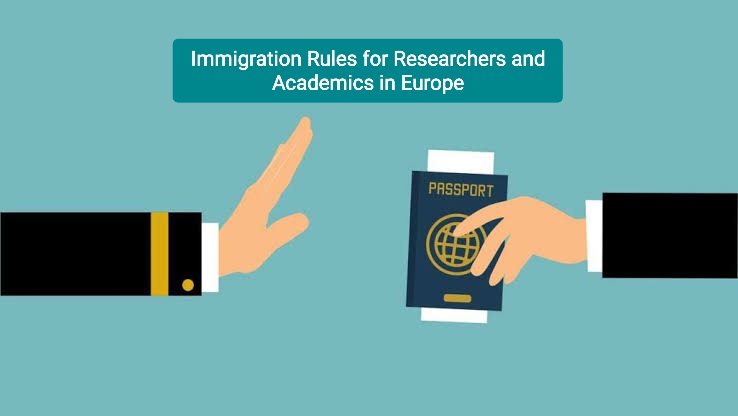Remote work has totally changed the game. Not long ago, we were all used to waking up early, dressing up, sitting in traffic, and working from an office from 9 to 5. But how about now? Many people work from anywhere from their homes. The idea of working remotely has exploded, especially since the COVID-19 pandemic. And now, it’s not just a trend but it’s a lifestyle. People are no longer tied to a desk or a specific city. As long as there’s good Wi-Fi, you’re good to go.
Europe has caught onto this wave too. More and more European countries are opening their doors to remote workers through digital nomad or remote work visas. So, if you’ve ever dreamed of living in Portugal, Croatia, or Estonia while still working for your employer or clients back in your home country then it’s totally possible now. You don’t have to be a tourist rushing through Europe for two weeks. You can actually live there legally and comfortably while working online.
Now let’s break down how to get that dream remote work visa and settle somewhere beautiful in Europe.
A Brief Overview of Remote Work in Europe
Remote work isn’t just a fancy idea anymore rather it’s part of the new normal. European countries have seen the potential of attracting remote workers. Why? Because it boosts their local economies without competing for local jobs. Think about it: a remote worker spends money in a country (on rent, food, transport, etc.) without actually taking a job from a local. It’s a win-win.
To support this idea, many countries have introduced special visas designed just for remote workers. These are usually called “Digital Nomad Visas” or “Remote Work Visas.” Some countries have simple processes, while others are more demanding. But overall, the idea is the same – you can live in the country legally while working for a foreign company or freelancing online.
Some of the popular European countries offering remote work visas include Portugal, Croatia, Estonia, Spain, Greece, and Malta. Each of these places offers a unique vibe to work remotely.
Eligibility Requirements for Visa for Remote Work
Before you even think of applying, you need to make sure you qualify. Most countries ask for a few common things:
- First, you must be working remotely for a company or clients outside the country you want to live in.
- You must show proof of stable income (usually between €2,000 to €3,500 per month).
- Also, you need valid health insurance that covers you in the country.
- You should have a clean criminal record.
- You will be required to show accommodation details (where you’ll be staying).
Some countries may ask for more, like educational qualifications, work contracts, or proof of freelance gigs. But once you tick these boxes, you’re well on your way to applying.
How to Get a Visa for Remote Work in Europe
I’m very sure you’re a remote worker looking for a European visa. You are probably looking for how to get this work permit. Here’s how to get one for yourself.
Step 1: Pick the Right Country
This is the fun part. Ask yourself: where do I want to live? Do you like sunny weather? Then go for Portugal, Spain, or Greece. Want a quiet and tech-forward place? Try Estonia. Looking for affordable living with great views? Croatia might be your best bet. Do your research, check their visa requirements, and compare the lifestyle and cost of living.
Step 2: Gather All the Required Documents
Once you’ve chosen a country, it’s time to collect your papers. Usually, you’ll need:
- A valid passport
- Proof of income or bank statements
- Remote work contract or proof of freelance clients
- Health insurance coverage
- Proof of accommodation (rental agreement or hotel booking)
- A clean criminal record certificate
Make sure all documents are recent and well-organized. Some countries require them to be translated into their language or certified, so check that too.
Step 3: Apply for the Visa
This is done either online or at the embassy/consulate of the country you chose. Visit their official immigration website for the exact steps. For example, Portugal has a specific digital nomad visa application page. All you have to do is to fill out the form, pay the required fee (usually around €60–€100), and submit your documents. Some embassies require appointments for submission.
Step 4: Wait for Approval and Travel
After submitting everything, you’ll have to wait. Processing times vary from two weeks to three months, depending on the country. If approved, they’ll either mail your visa or ask you to come pick it up. Once you have your visa, book your flight, pack your laptop, and go!
Step 5: Register Locally
The last but not the least step you should take is to register. Some countries ask you to register with the local immigration office once you arrive. Also, you might need to pick up a residence card or let the local authorities know you’re in town. Don’t skip this part because it’s important for staying legal.
Frequently Asked Questions
Now we are going to attempt some common questions often asked by people regarding the remote work visa.
What is the easiest digital nomad visa to get in Europe?
Croatia and Estonia have some of the easiest and fastest application processes. Estonia, especially, is known for being digital-friendly, and the whole application can be done online. Croatia digital nomad visa is also quite straightforward if you meet the income requirement.
Can I work remotely in Europe?
Yes, you can. But you need the right visa. If you just go on a tourist visa and start working remotely, you might get into trouble if caught. That’s why digital nomad or remote work visas exist – they make you legal and safe while living in Europe.
How to get a remote working visa in Europe?
First, choose the country that fits your vibe and income level. Then gather your documents – passport, remote work proof, income proof, health insurance, and housing details. Apply at the embassy or online, pay the fee, and wait for your visa. Once you get it, you’re all set to move and work legally in Europe.
Which country has the best digital nomad visa?
This depends on your lifestyle. Portugal offers a mix of sunny weather, affordable cities, and friendly locals. Estonia is great for tech workers. Spain has amazing cities like Valencia and Barcelona with lots of coworking spaces. It all boils down to what you’re looking for. Is it environments, internet, safety, or cost of living?
How much do you need to make to get a digital nomad visa in Europe?
It varies, but most countries want to see that you earn at least €2,000 to €3,500 per month. This is to prove you can support yourself without needing a local job. Some countries also ask for savings or a certain amount in your bank account (like €6,000–€10,000).
Conclusion
Remote work is no longer the future, it’s the present. And Europe? It’s wide open for people like you who want a better work-life balance. The great thing is you don’t need to be rich or special. If you’ve got a steady job or freelance work, a clean record, and the desire to explore, then this is your time.
Getting a visa for remote work in Europe is not as hard as it sounds. It just takes a bit of planning, some paperwork, and the courage to go for it. So, stop waiting for the perfect moment. Pick a country, start gathering your documents, and take the leap.
The world is open, and with remote work, it’s yours to explore. We at EuroInfopedia wishes you a happy remote working and hope to see you soon in Europe!





